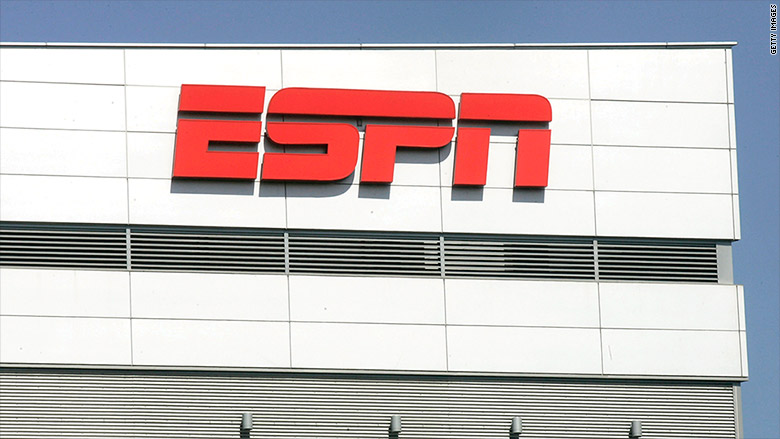ESPN Layoffs: Investigating the Future Viability of Sports Entertainment Business Model
John Tank, Peter Rasimas
This past week, ESPN laid off over 100 employees, including several notable on air personalities. NFL Reporter Ed Werder, NBA Reporter Marc Stein, College Football Analyst Danny Kanell, College Basketball Reporter Andy Katz, and NHL Reporter Pierre LeBrun are a just a few of the notable big names no longer working at ESPN.
ESPN network president John Skipper released the following statement on the recent firings: “A necessary component of managing change involves constantly evaluating how we best utilize all of our resources, and that sometimes involves difficult decisions. Our content strategy — primarily illustrated in recent months by melding distinct, personality-driven SportsCenter TV editions and digital-only efforts with our biggest sub-brand — still needs to go further, faster … and as always, must be efficient and nimble. Dynamic change demands an increased focus on versatility and value, and as a result, we have been engaged in the challenging process of determining the talent — anchors, analysts, reporters, writers and those who handle play-by-play — necessary to meet those demands. We will implement changes in our talent lineup this week. A limited number of other positions will also be affected, and a handful of new jobs will be posted to fill various needs.”
As reported by the Washington Post, these layoffs are due to a big two-headed problem facing the sports cable titan. Over the past five years, the networks has lost roughly 12 million subscribers, as many sports fan look for a cheaper avenue for their entertainment. While subscribers are dropping, the cost for ESPN to air professional sports league has been climbing.
Last year, ESPN’s new agreement with the NBA took effect. This is reported to cost the network roughly 1.5 billion dollars per year, a substantial increase from their previous contract. In addition to the NBA, it is also reported that ESPN also pays an annual fee of 1.9 billion dollars to the NFL, 700 million dollars to the MLB, and over 1 billion dollars to the NCAA.
The issue that ESPN and their parent company Disney face is changing consumer preferences. As viewers cut their cable subscriptions, they are more often getting their sports information through social media, whether it’s by using Facebook, Twitter, Instagram, or YouTube. Last year, Twitter purchased the rights to broadcast Thursday night football games live through their website and applications on mobile devices. This upcoming season, Amazon has purchased the rights to those same games, and viewers will be able to watch through Amazon.com as the company aggressively expands their online video offerings.
What is stopping ESPN from doing this exact same thing? As consumers move away from traditional cable packages, and more often than not consume their media through the use of the internet you would think that ESPN would see this change in preferences and adapt. However, they have not done so to this point. ESPN is being offered in traditional cable packages, and more recently in “lite” cable packages through services such as sling TV, which allow consumers to watch their favorite shows for a fraction of a price with any Internet-connected device.
It will be interesting to see if ESPN adapts to a new kind of subscription service for their shows. The contracts that ESPN has signed with major sporting organizations will allow ESPN to maintain control over their viewers as long as they have exclusive rights to certain games. However, in the future, we may see that ESPN will begin to offer their content through a subscription-based service, much like Netflix. Disney CEO Bob Iger has shown during his tenure that he is open to change and adaptation in order to grow the company, and Iger just signed on to serve as CEO through July of 2019. Iger and Disney may push ESPN to change to a subscription-based service on top of being available through a cable subscription service, but who knows. As far as we know, Disney could sell ESPN to the highest bidder instead of attempting to deal with current problems facing the company.



